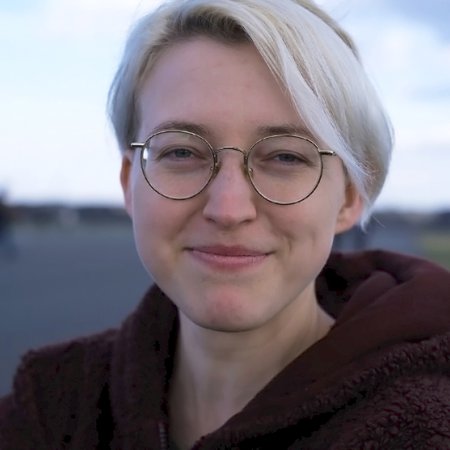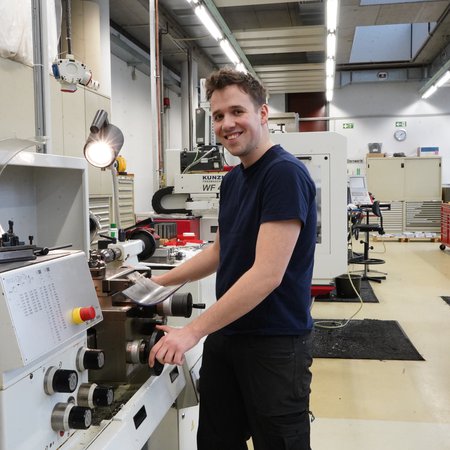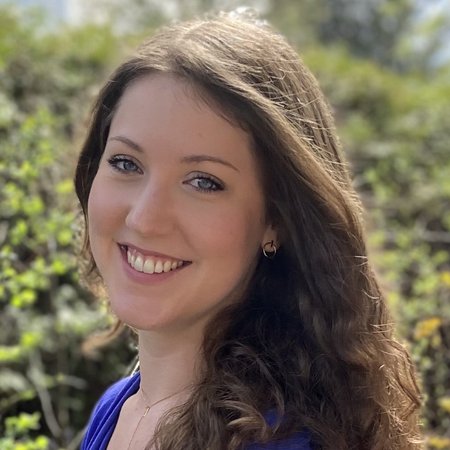Grant for research on satellite galaxies
Dr Marcel Pawlowski from the Leibniz Institute for Astrophysics Potsdam (AIP) receives funding in the Leibniz competition to establish a junior research group dedicated to the motion and distribution of satellite galaxies of our Milky Way and other galaxies.
Our immediate cosmic neighbourhood is called the Local Group. It consists of two large spiral galaxies, the Milky Way and Andromeda. Both are several million light years apart and surrounded by dozens of smaller satellite galaxies of lower mass. The cosmological standard model provides information about the evolution of the universe from the Big Bang to the galaxies of today. On cosmologically large scales - i.e. applied to the universe as a whole - this model is very successful. It makes precise predictions, which have been confirmed to the percentage range. However, the model implies that most of the total mass of the known universe is made up of the so called dark matter. Since it is a source of gravity, it has a direct effect on the motion and interaction of galaxies - thus determining the choreography. Simulations show that the many small satellite galaxies should arrange and move almost randomly around massive galaxies. However, much more ordered distributions were observed in the Local Group.
The funded project of Dr Marcel Pawlowski and his team will use simulations as well as observations and test the cosmological standard model on the scale of the satellite galaxies. Do they dance as chaotically as predicted, or do they also follow a more ordered cosmic choreography and what is its origin? "The project will either reconcile the existing cosmological theory with current observational data - or reinforce the current discrepancy and thus provide information about the nature of dark matter," says Dr Marcel Pawlowski, explaining the research group's goal. The funding will extend over 5 years.
Dr Marcel Pawlowski is a Schwarzschild Fellow at the Leibniz Institute for Astrophysics Potsdam (AIP) since 2018. Prior to that he was a NASA Hubble Fellow at the University of California in Irvine and a postdoctoral fellow at Case Western Reserve University in Cleveland, Ohio.
The programme "Leibniz-Junior Research Groups" is one of four funding programmes of the Leibniz Competition and is aimed at postdocs with an excellent scientific career. As leaders of junior research groups, they are given the opportunity to realise their own research projects and further establish themselves in their respective research field. With this funding format, the Leibniz Association offers them attractive research conditions and networking opportunities.
Dr Marcel Pawlowski from the Leibniz Institute for Astrophysics Potsdam (AIP) receives funding in the Leibniz competition to establish a junior research group dedicated to the motion and distribution of satellite galaxies of our Milky Way and other galaxies.
Our immediate cosmic neighbourhood is called the Local Group. It consists of two large spiral galaxies, the Milky Way and Andromeda. Both are several million light years apart and surrounded by dozens of smaller satellite galaxies of lower mass. The cosmological standard model provides information about the evolution of the universe from the Big Bang to the galaxies of today. On cosmologically large scales - i.e. applied to the universe as a whole - this model is very successful. It makes precise predictions, which have been confirmed to the percentage range. However, the model implies that most of the total mass of the known universe is made up of the so called dark matter. Since it is a source of gravity, it has a direct effect on the motion and interaction of galaxies - thus determining the choreography. Simulations show that the many small satellite galaxies should arrange and move almost randomly around massive galaxies. However, much more ordered distributions were observed in the Local Group.
The funded project of Dr Marcel Pawlowski and his team will use simulations as well as observations and test the cosmological standard model on the scale of the satellite galaxies. Do they dance as chaotically as predicted, or do they also follow a more ordered cosmic choreography and what is its origin? "The project will either reconcile the existing cosmological theory with current observational data - or reinforce the current discrepancy and thus provide information about the nature of dark matter," says Dr Marcel Pawlowski, explaining the research group's goal. The funding will extend over 5 years.
Dr Marcel Pawlowski is a Schwarzschild Fellow at the Leibniz Institute for Astrophysics Potsdam (AIP) since 2018. Prior to that he was a NASA Hubble Fellow at the University of California in Irvine and a postdoctoral fellow at Case Western Reserve University in Cleveland, Ohio.
The programme "Leibniz-Junior Research Groups" is one of four funding programmes of the Leibniz Competition and is aimed at postdocs with an excellent scientific career. As leaders of junior research groups, they are given the opportunity to realise their own research projects and further establish themselves in their respective research field. With this funding format, the Leibniz Association offers them attractive research conditions and networking opportunities.
Images
Dr Marcel Pawlowski.
Big screen size [1000 x 1055, 1.5 MB]
Original size [1359 x 1435, 2.3 MB]





